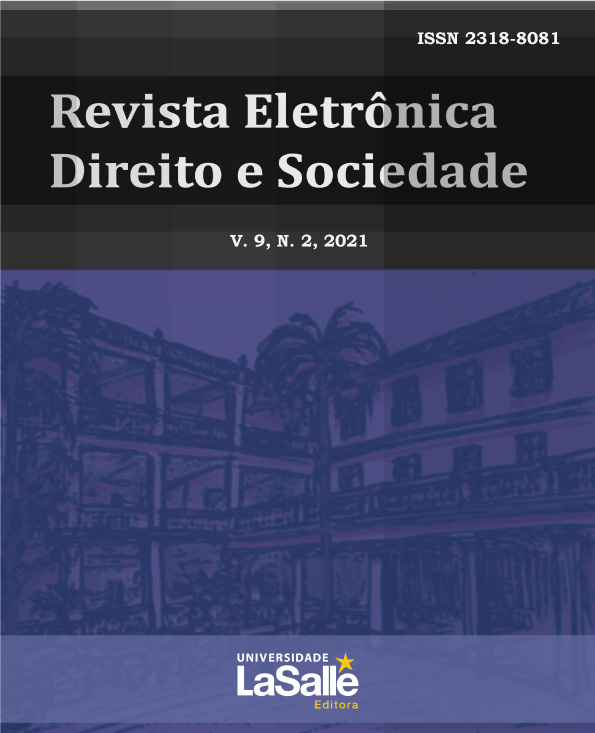Ativismo Judicial, Princípio da Eficiência e Litigiosidade Repetitiva: Análise da Atuação do Judiciário na Efetivação dos Direitos Sociais
DOI:
https://doi.org/10.18316/redes.v9i2.4807Parole chiave:
Poder Judiciário, Ativismo Judicial, Princípio da Eficiência, Litigiosidade Repetitiva.Abstract
O presente ensaio versa sobre o ativismo judicial, o princípio da eficiência e litigiosidade repetitiva, cujo corte epistemológico situa-se na análise crítica do Poder Judiciário, seu papel e funcionalidade. Esta temática é de suma importância, haja vista a crise político - institucional que o país atravessa, e pela própria necessidade de se buscar soluções científicas ao problema. A hipótese afirma que sem a aplicação prática da Constituição como técnica de efetivação de direitos sociais não há desenvolvimento real. Persegue-se a seguinte problemática: a obrigação do magistrado restringe-se apenas à sua discricionariedade regrada ou ele pode avançar ativamente quando se tratar da efetivação dos direitos sociais? E, a baixa constitucionalidade e consequente falta de efetividade das normas fundamentais, derivam de uma preocupação legítima com a segurança jurídica e o princípio do economicamente possível ou aponta para um papel extremamente simbólico da Constituição Federal? Tem-se lastro no método dedutivo e na metodologia calcada no uso de pesquisa bibliográfica exploratória e qualitativa, com cotejamento do marco teórico, “Justiça e [o Paradigma da] Eficiência)”. Objetiva-se mostrar como a efetivação dos direitos sociais conduz ao desenvolvimento; as eficiências e deficiências do Poder Judiciário; e os ajustes necessários para se construir uma sociedade realmente desenvolvida.Downloads
Pubblicato
Fascicolo
Sezione
Licenza
Autores que submetem seus manuscritos para serem publicados na Revista REDES concordam com os seguintes termos:
Os autores declaram ter ciência de que mantém os direitos autorais concedendo à REDES o direito à publicação.
Os autores declaram ter ciência de que o trabalho submetido será licenciado sob a Licença Creative Commons atribuição não-comercial que permite o compartilhamento do artigo com reconhecimento da autoria e publicação nesta revista.
Os autores declaram ter ciência que em virtude de os artigos publicados nesta revista tem acesso público e gratuito.
Os autores declaram, sob as penas da lei, que o texto é inédito e original e que têm ciência de que identificada a existência de plágio, os autores plagiados serão informados – para querendo, tomarem as medidas legais nas esferas cível e criminal – e, os autores do plágio terão seu acesso à revista bloqueado.
Os autores declaram que – em caso de coautoria – todos contribuíram significativamente para a pesquisa.
Os autores obrigam-se a fornecer retratações e (ou) correções de erros em caso de eventual detecção.
Os autores obrigam-se a não publicar o texto submetido a REDES em outra Revista eletrônica (ou não).

A Revista Eletrônica Direito e Sociedade - REDES - está licenciado com uma Licença Creative Commons Atribuição-NãoComercial 4.0 Internacional.
Baseado no trabalho disponível em http://revistas.unilasalle.edu.br/index.php/redes/about/submissions#copyrightNotice.
Podem estar disponíveis autorizações adicionais às concedidas no âmbito desta licença em http://creativecommons.org/.

